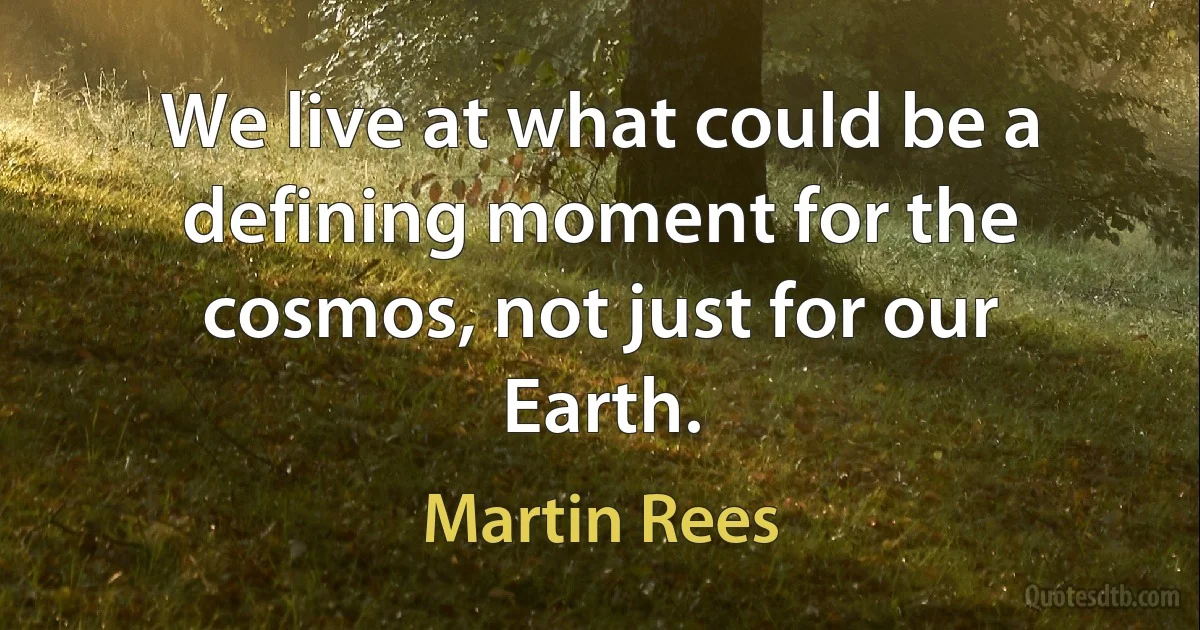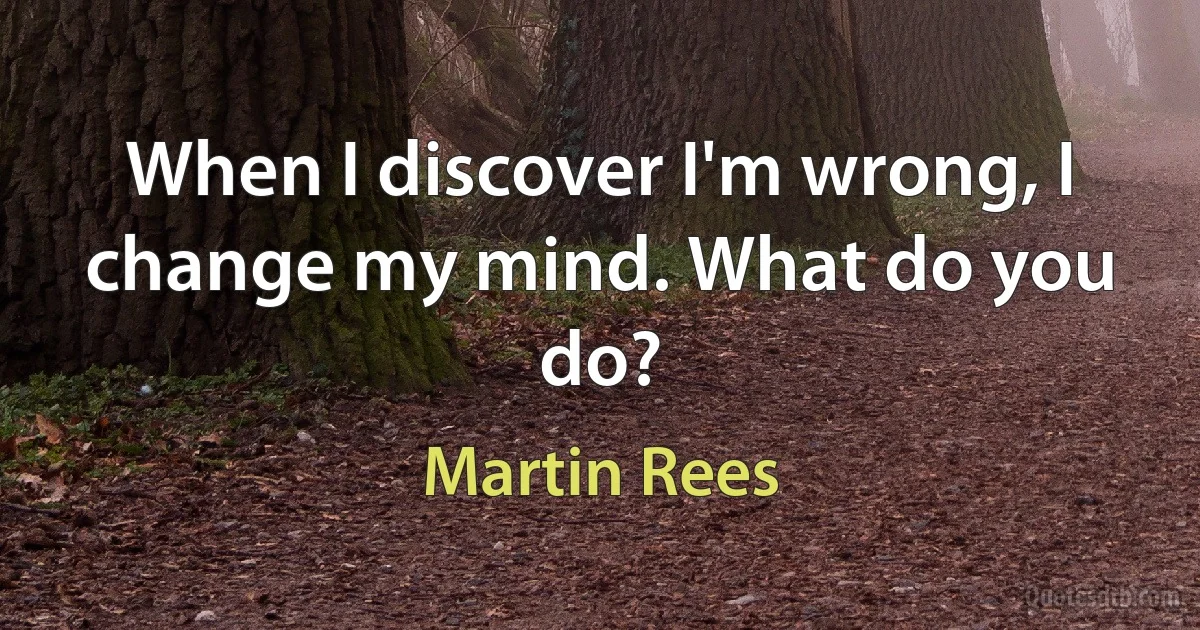Martin Rees quotes - page 2
Scientists habitually moan that the public doesn't understand them. But they complain too much: public ignorance isn't peculiar to science. It's sad if some citizens can't tell a proton from a protein. But it's equally sad if they're ignorant of their nation's history, can't speak a second language, or can't find Venezuela or Syria on a map.

Martin Rees
I have no religious belief myself, but I don't think we should fight about it. In particular, I think that we should not rubbish moderate religious leaders like the Archbishop of Canterbury because I think we all agree that extreme fundamentalism is a threat, and we need all the allies we can muster against it.

Martin Rees
Once the threshold is crossed when there is a self-sustaining level of life in space, then life's long-range future will be secure irrespective of any of the risks on Earth (with the single exception of the catastrophic destruction of space itself). Will this happen before our technical civilisation disintegrates, leaving this as a might-have-been? Will the self-sustaining space communities be established before a catastrophe sets back the prospect of any such enterprise, perhaps foreclosing it for ever? We live at what could be a defining moment for the cosmos, not just for our Earth.

Martin Rees


